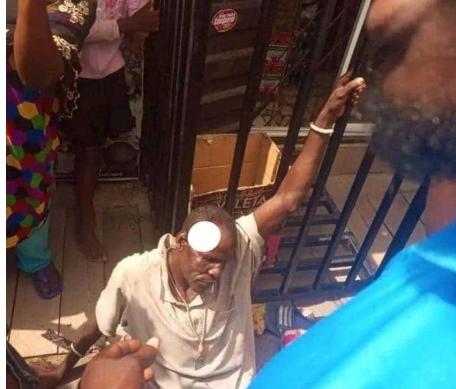In an unexpected turn of events, a man suspected of being a magical manhood thief found himself at the mercy of an enraged mob in Lokoja, Kogi State.
The altercation unfolded when the suspect entered a shop with the intent to purchase bread.
Little did he know that this routine errand would lead to chaos and violence.
Confusion erupted as the shop owner suddenly experienced an electrifying shock coursing through his body.
Alarmed and desperate, he checked his manhood, only to discover that it had vanished without a trace.
His anguished cries for assistance attracted the attention of nearby residents and passersby.
Swiftly responding to the distress call, the concerned citizens apprehended the suspect, and their anger boiled over, resulting in a merciless beating.
Eyewitnesses, including Michael Nwankwo, observed the shocking scene as the suspect, under duress, confessed to the bizarre crime.
Strangely, he expressed joy that the stolen manhood of the shop owner had been miraculously restored.
This incident is not an isolated one. Similar cases have surfaced in Ganaja and Karaworo, both located in the state capital.
In each of these instances, suspected manhood thieves faced the wrath of vigilante justice.
Acknowledging the rising number of incidents, ASP William Aya, the Police Public Relations Officer, confirmed that the police are actively monitoring the situations.
He issued a stern warning, urging the public not to take the law into their own hands. Instead, he encouraged citizens to report such allegations to the police, allowing for a thorough investigation to take place.
ASP Aya emphasized that individuals resorting to vigilantism and violence could face legal prosecution in accordance with the law.










